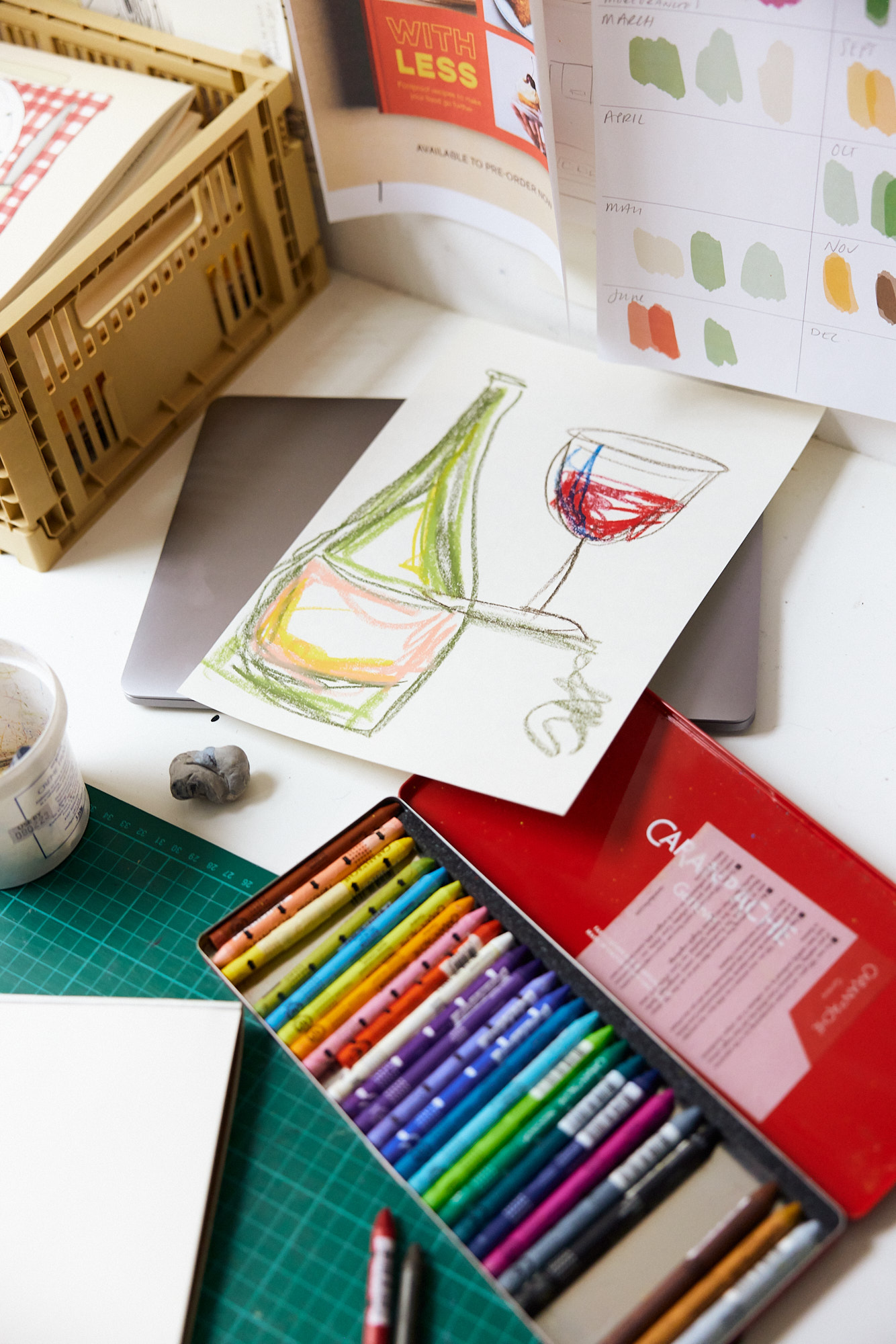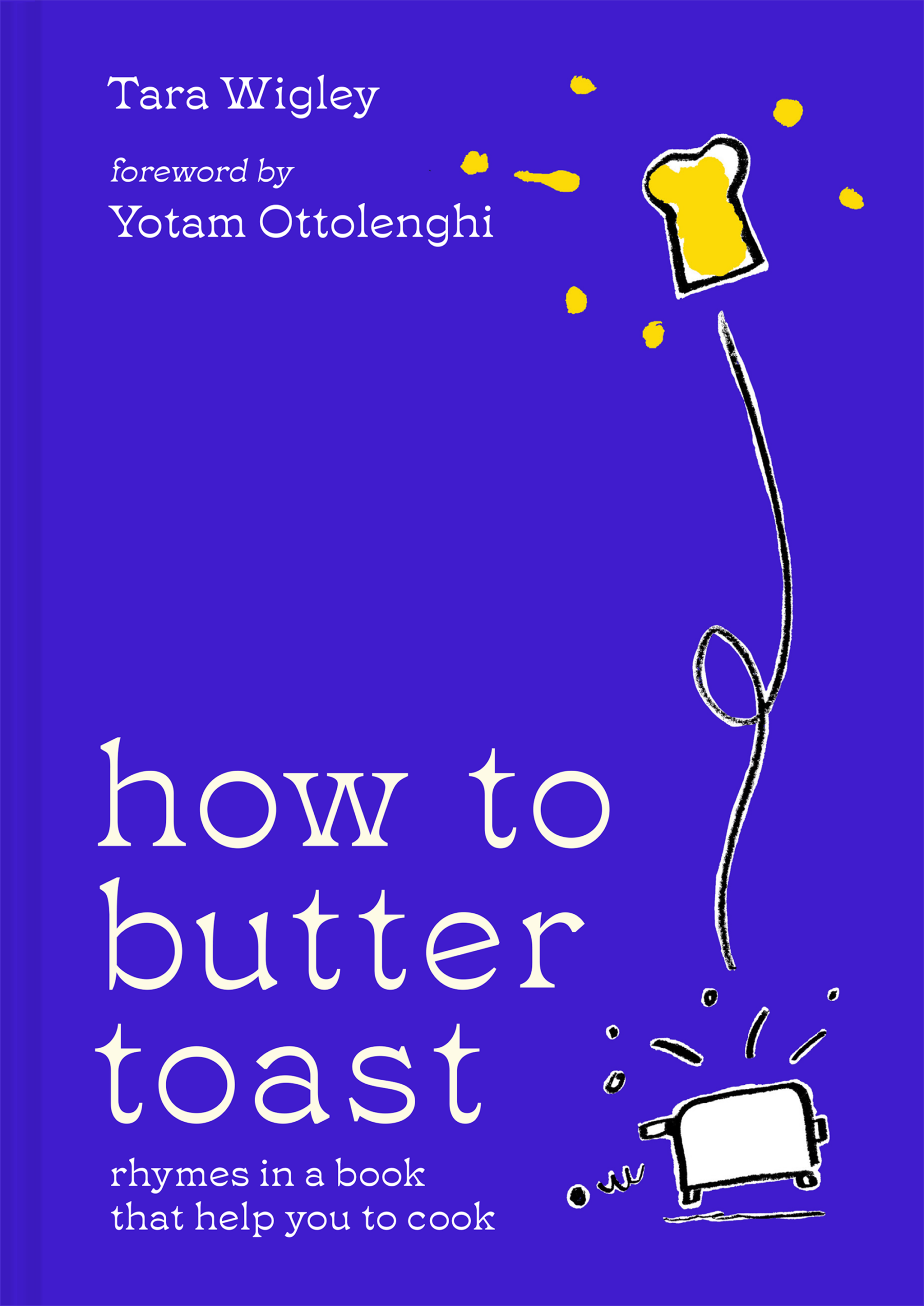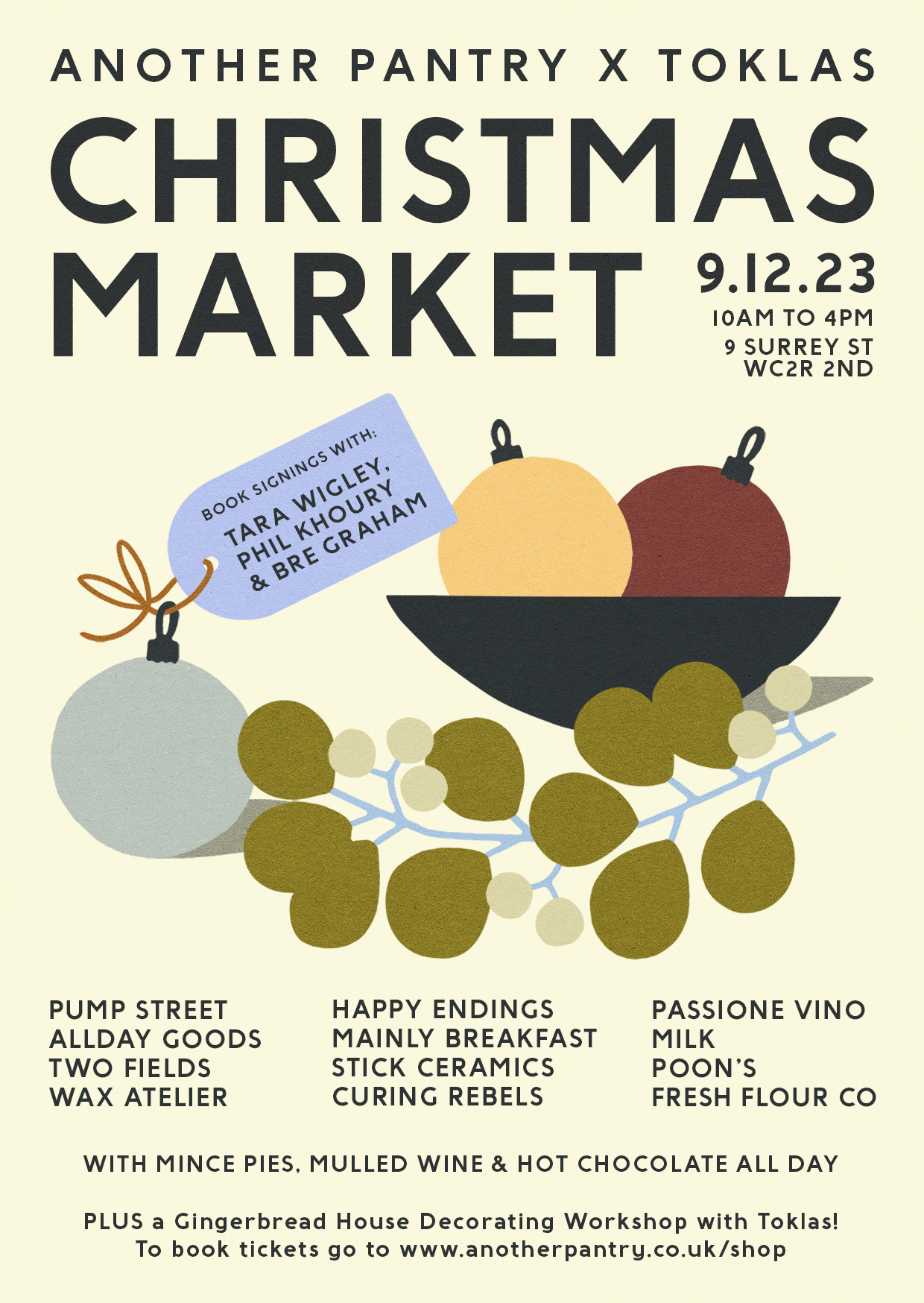
In The Neighbourhood — Toklas Bakery, The Strand
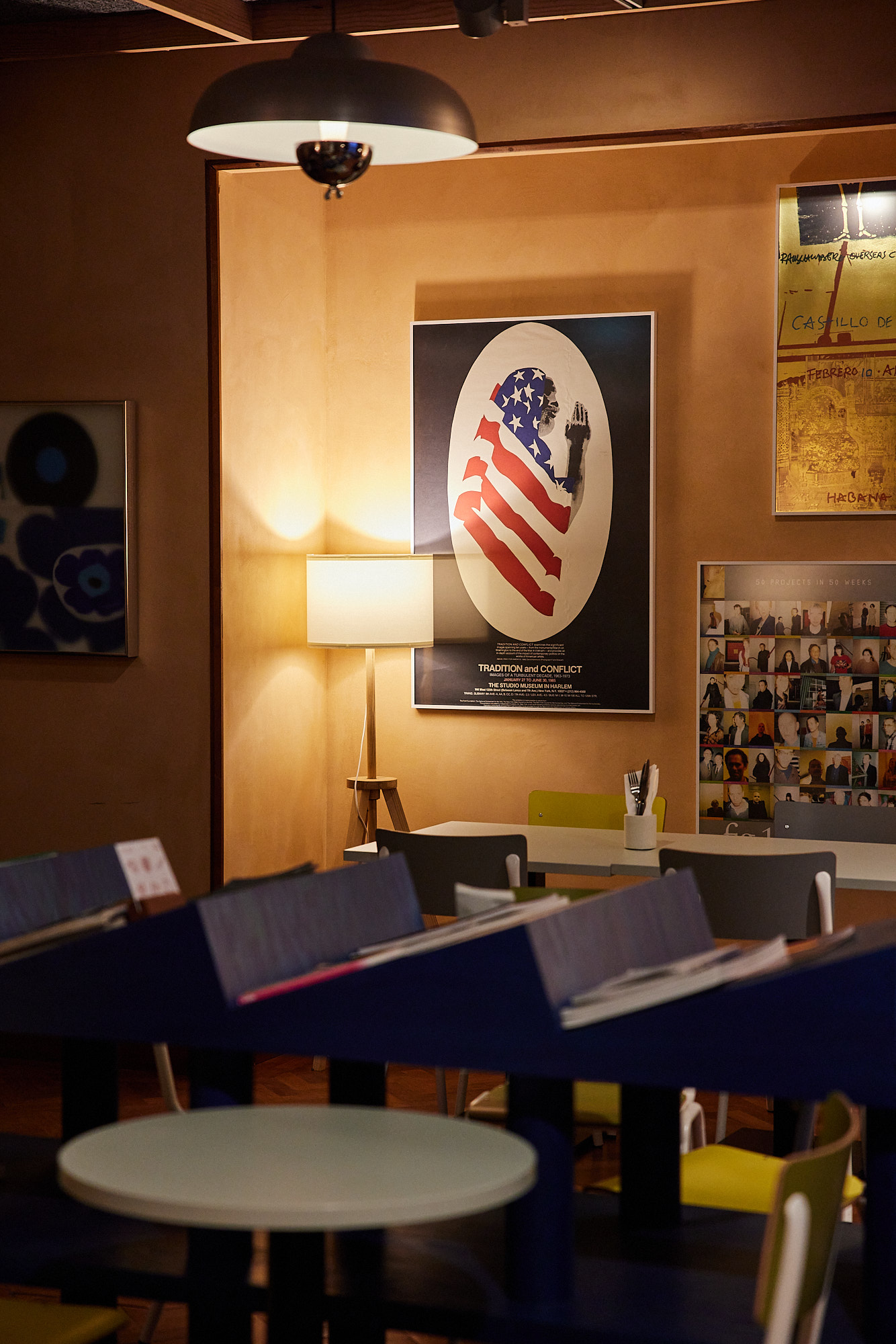
Founded by the creators of Frieze, Toklas is a restaurant and bakery concept housed in a brutalist building moments from the views of London’s Embankment. Although entirely separate from the now renowned art fair, the two eateries exude an unmistakable intertwining with art, design and detail, from the frames on the walls to the food on the plates. Ahead of our Christmas Market at Toklas Bakery, we sat down with head baker Janine to chat about the process of bringing the bakery to fruition, the intentions of the spaces and the philosophy behind the food itself, from suppliers and relationships, to ingredients and experimentation.
Owned by the founders of Frieze, it feels only right to talk about the relationship between food and art when discussing the story of Toklas. How does that relationship play out in the restaurant and the bakery?
Toklas was intended to be quite separate from Frieze, but I think even the brutalist building that the bakery and restaurant are housed in sort of implicates Toklas into that relationship already! The reason we’re in here is actually because the Frieze offices are right upstairs in 180 Strand, and the space became available so it worked well.
“For me personally, I was a chef before becoming a baker so I still have that kind of philosophy of cooking with your eyes, letting the produce inspire you and seeing how savoury elements can influence baking and pastries too.
I think it’s quite apparent within the spaces themselves, how they have been designed and the craftspeople and artists that we’ve worked with to bring them to life. The counter in the bakery for example was designed by Stafford Shmool whose work is based on the idea of bricolage — the practice of constructing and creating pieces from various different things. There are also artworks all over the walls throughout the bakery and the restaurant — there are a series of 9 portraits made with food and household objects called “Faces” by artist Alexandre de Cunha in the bakery’s back room.
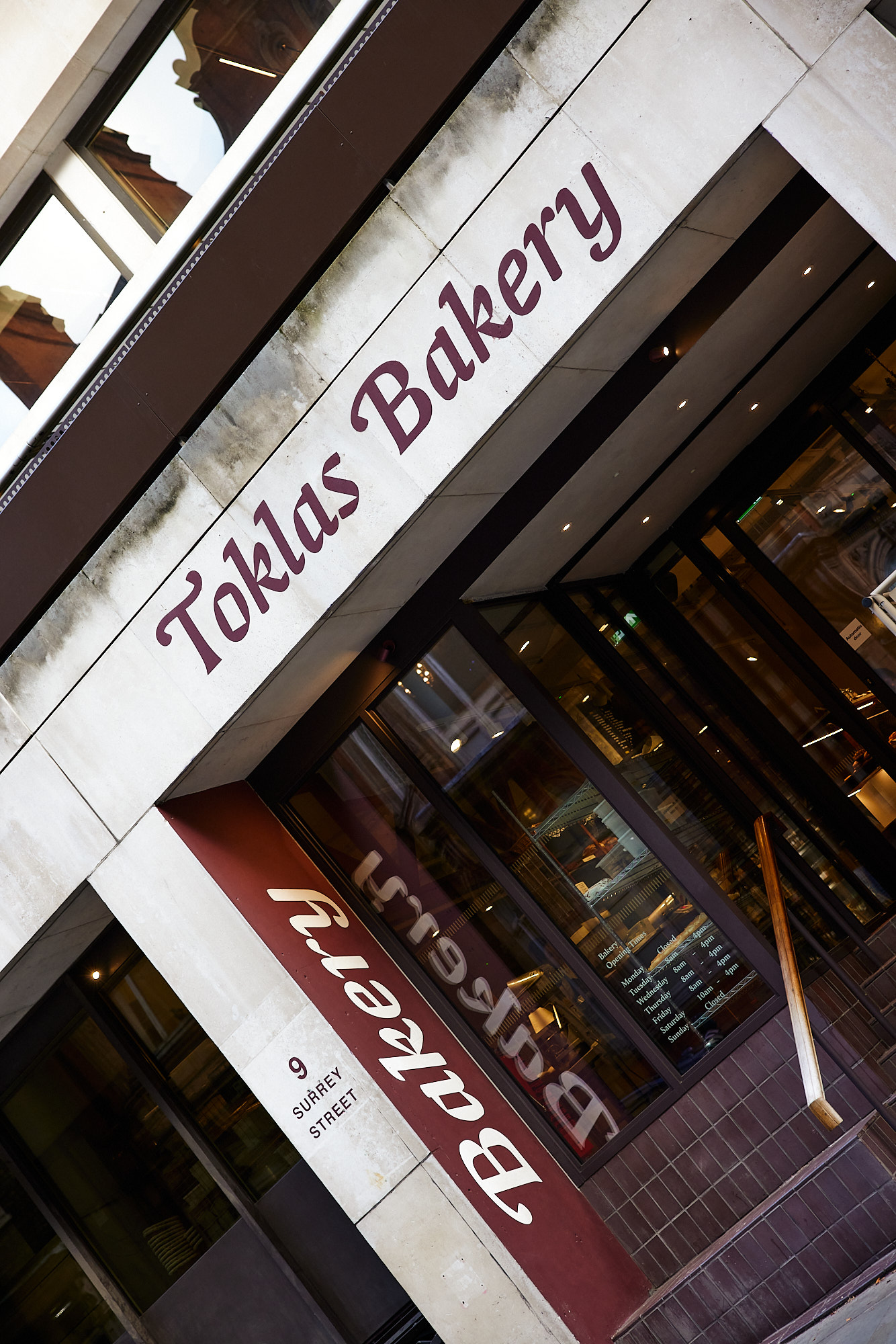
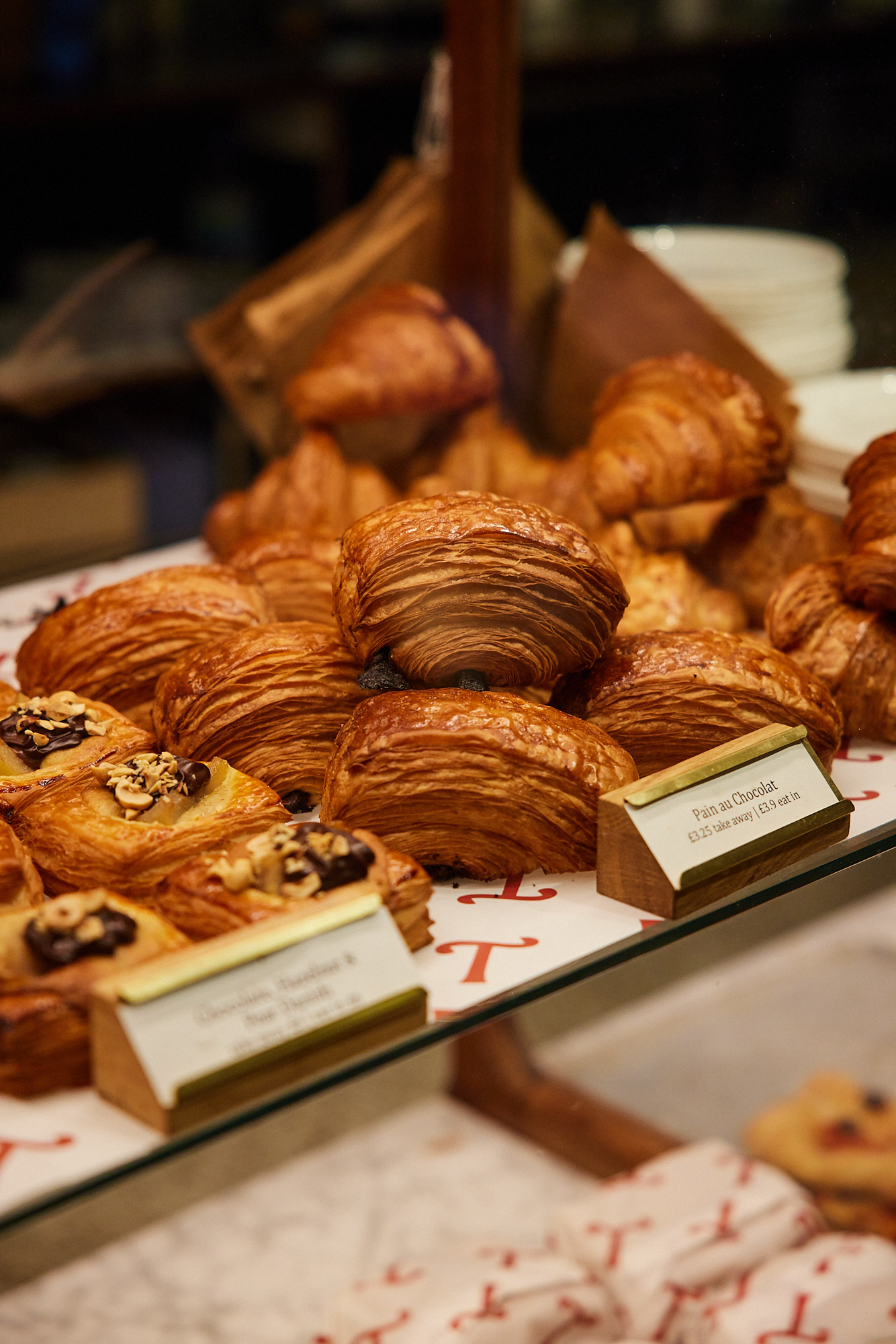
What would you say is the guiding force that ties Toklas together — is it a food philosophy, a desire to foster community, an appreciation of art? Is there a link between the story, the space and the menu?
A key component for us right from the beginning was showcasing suppliers and the unique relationships we have with people that we work with, like Todoli Citrus in Valencia. Working with quality products — quality grains, quality butter — and celebrating the ingredients we use has always been at the forefront of what Toklas is about. That very much includes embracing the changes that those products bring and what that means for the way we cook and bake, and what we serve.
Working with ancient and heritage grains for example has been such a pleasure but it’s meant that it’s a continuous process of trial and error, making changes to recipes based on the grain used, the temperature, reassessing any additions to the product. We mill some of the grain here ourselves and when we went into wholesale it meant that we had to shift from a liquid levain to a stiff levain in order to maintain quality.
For me personally, I was a chef before becoming a baker so I still have that kind of philosophy of cooking with your eyes, letting the produce inspire you and seeing how savoury elements can influence baking and pastries too.
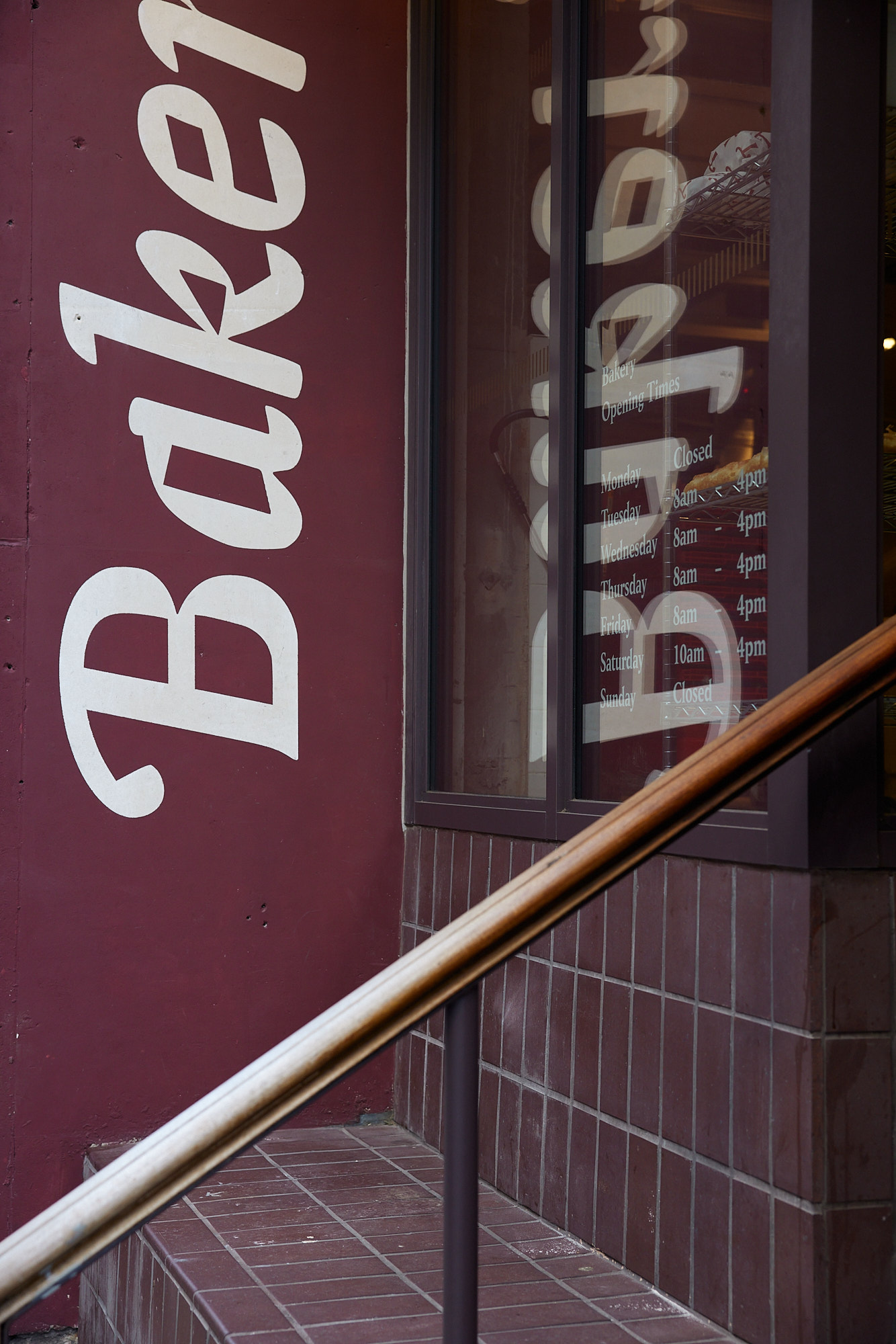

The name Toklas is a nod to writer Alice B. Toklas and her eponymous cookbook, published in 1954. What is it about Alice that made it feel right to name the restaurant and bakery after her?
Alice was a member of the Parisian avant-garde in the early nineteenth century and her partner was Gertrude Stein. Together they used to host salons in their home in Montparnasse, and they became a sort of meeting point for artists and literary minds of the time, including people like Ernest Hemingway and F. Scott Fitzgerald, and even Picasso. I think there is definitely a nod to the ethos of bringing artists together and creating a space for community exist which is sort of what Toklas the restaurant and bakery have become.
When the idea came to fruition, what was the process of defining the bakery offering and finding what made Toklas unique? Where did you start out and how do you think it’s evolved since you opened?
I think Toklas is unique to other bakeries is in the way we constantly aim to try new things. A lot of places will decide on their menu and maybe one or two things will change, but our menu is constantly evolving. It changes with the seasons, with ingredients, with our knowledge and it’s definitely developed a huge amount in the last few years since we opened. It’s also been such a pleasure in the way the team has changed and grown and how that has played out in the kitchen. The different team members bring their own experience and expertise, new techniques, new flavours and it informs the way we learn and change our offering.
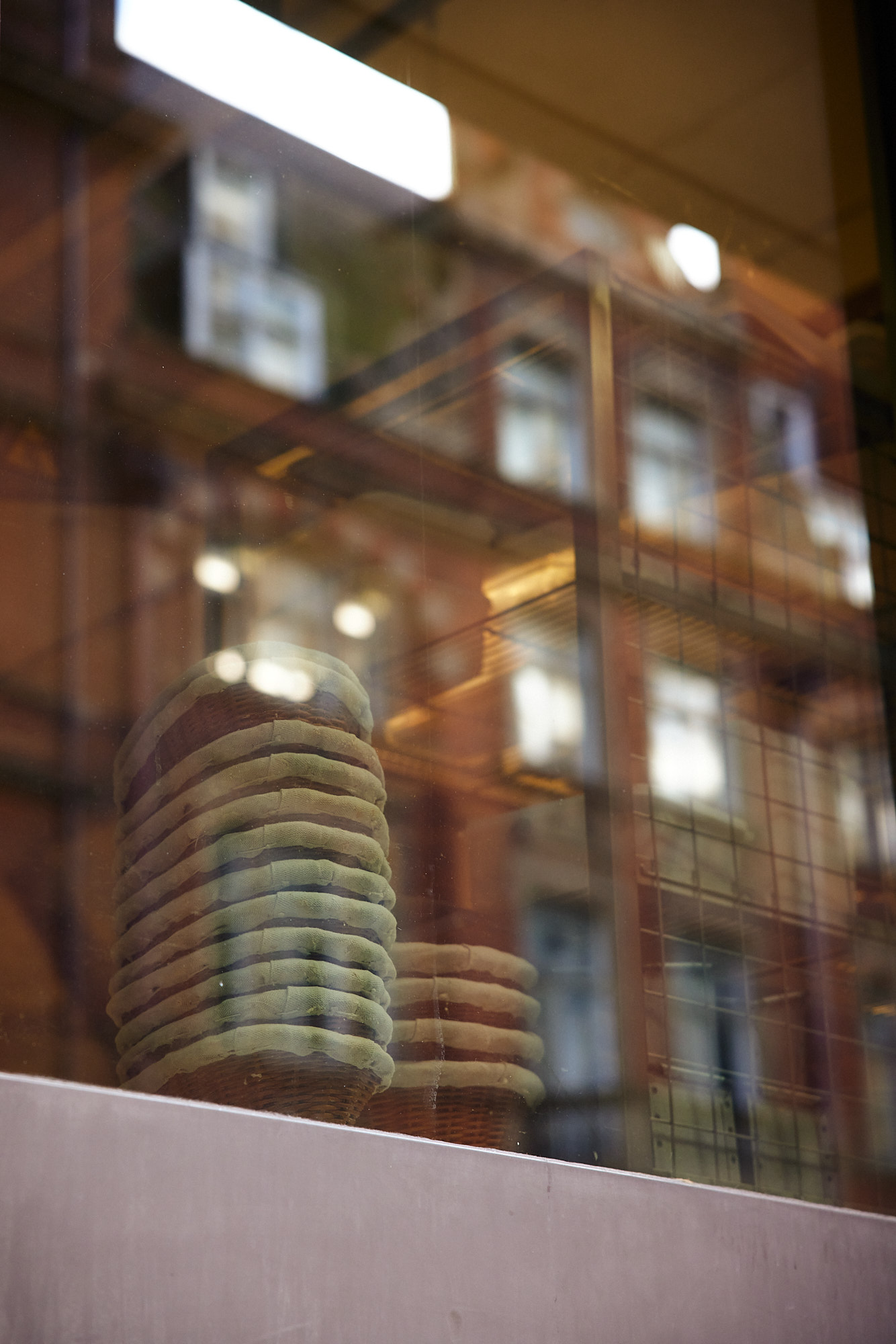
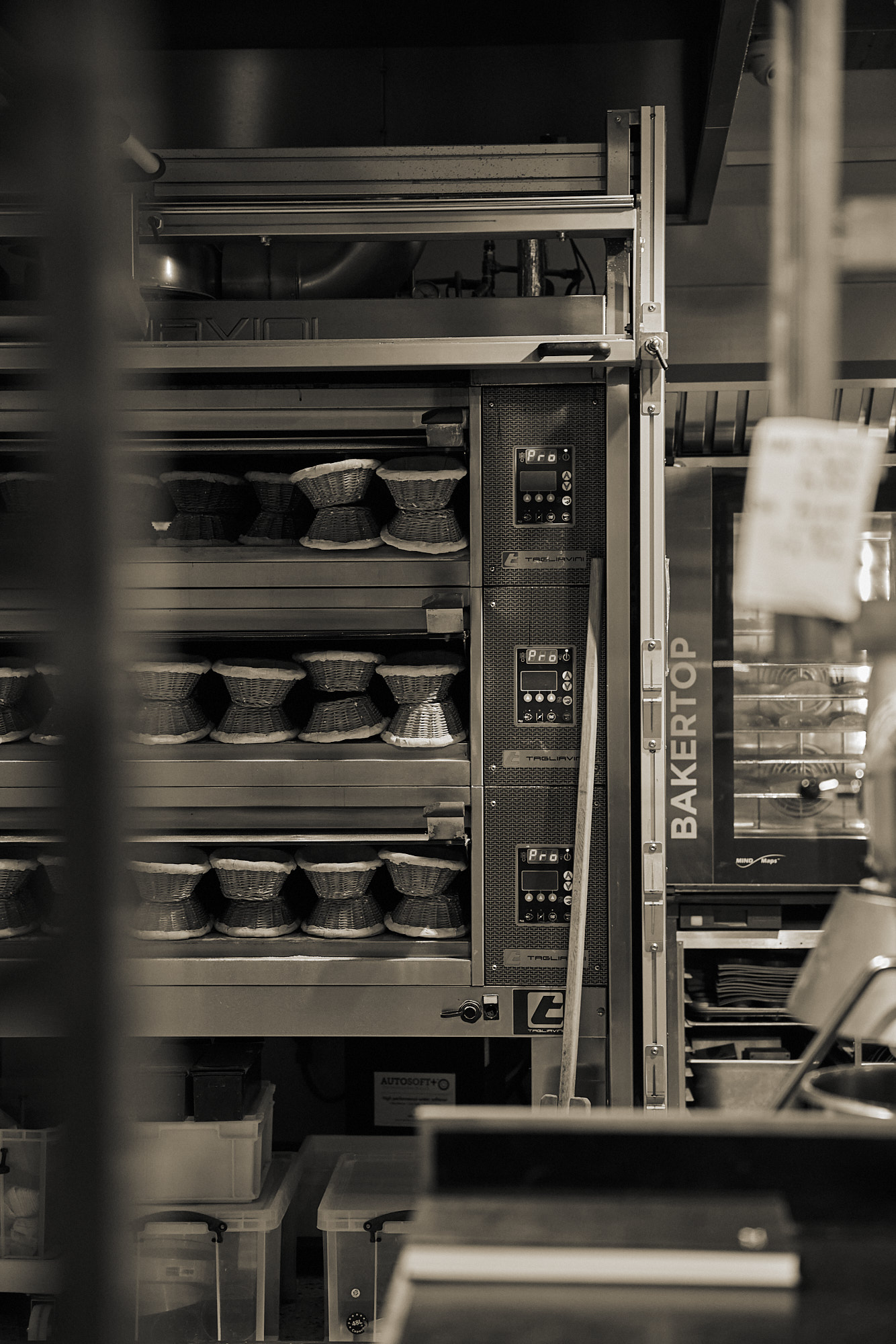
You work with some incredible suppliers and have strong links with wonderful farmers both in the UK and abroad — one of which is Todoli Citrus in Valencia. Can you tell us a little bit more about how that relationship came to be and what it means to the bakery and restaurant?
Vincenzo is a sixth generation farmer within his family, and he actually used to be the head curator at Tate so that’s how he got to know Matt and Amanda.When he left the art world, he decided to go back to the farm and continue the work that his family had started. I think they had always had the farm but Vizenzo says that he sees it not so much as a farm for producing, but more like an exhibition, a curation in a way — a place for academics and chefs to enjoy it and learn from it. We started working with them when we opened the restaurant and became the main distributors of their citrus here in the UK, so that led to lots of the connections that Todoli now has with restaurants like The Clove Club and within the Super8 Group.
It’s been incredible to discover so many different types of citrus through them, and to celebrate it we held a pop-up last year entirely dedicated to Todoli. They have around 400 different varieties, so we put together a big citrus tasting table and designed the whole menu for a day entirely around citrus. We wanted to encourage people to walk around and discover the different varieties, for it to be quite interactive, and it was great. It was the first time I properly started to understand how I could showcase it across the menu.
The grocery shop side of the bakery also spotlights a range of small producers and businesses, mirroring the suppliers that you use in the bakery itself, and some of which we’ll have at our market on the 9th December. What does it mean to you to work with independents and champion what they do? What do you look for in your suppliers and partners?
For us it’s mainly about quality, and with quality comes great flavour. When you’re working with ingredients of a certain quality you actually don’t have to intervene too much, you can let them shine as they are and just keep things really simple. Edinburgh Butter for example is one of my favourite suppliers, and Spice Mountain are incredible too. We get our nuts from Food & Forest, fruit and veg from Shrub and grains from Green Acres Farm in Shropshire.
Our whole team went up to Green Acres Farm recently for the first time to see and begin to understand it. They’re surrounded by commercial farms out there and seeing what they do in contrast to that just completely changes how you interact with and respect the ingredients back in the bakery. That’s on the kitchen side, but those visits also sort of serve to close the gap between the supplier and front of house who can then convey that back to the customer. I think that’s been hugely valuable in sharing the message of what Toklas is really about and the role the suppliers we work play in what we serve.

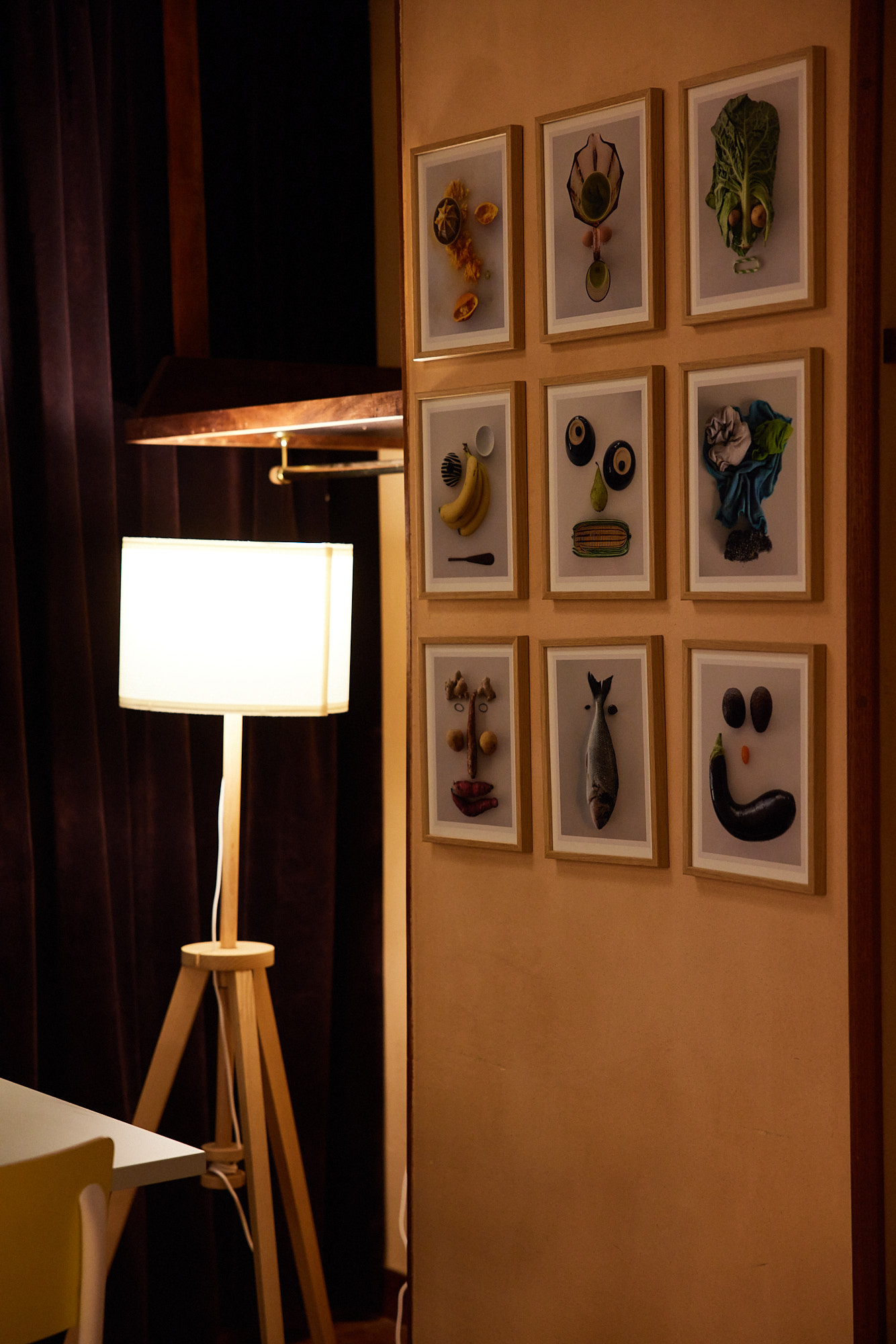
It feels as though the bakery has managed to become a space of creativity and community — often a hub for creatives and freelancers to work away, and also thanks to your roster of events. Is that always something that was going to be an important part of Toklas, or why do you think it’s become that?
The space lends itself so nicely to it, and it’s a good way to get people into the space as we’re quite tucked away from the main streets near here. It’s sort of a hidden gem. The back room was always intended to be an event space and although it mainly is now an additional space for the cafe, after we did our first pop-up with Nicola Lamb we saw how great it could be. We then did the Citrus Pop Up and now the Christmas Market, and generally host quite a few events in here. It’s been a lot of fun. The events sort of feed back into the collaborative nature of the cooking we do here which is just a really nice way of learning, of exploring the way food creates a sense of community.
The Toklas Pantry
(5 items that are always in your pantry, or that you can’t live without!)
1. Chilli Flakes
2. Daphne & Chloe thyme flowers
3. Ling Honey from London Honey Co (it’s in our chocolate biscuit)
4. Citrus — limequat pickle
5. Piedmont Hazelnuts
